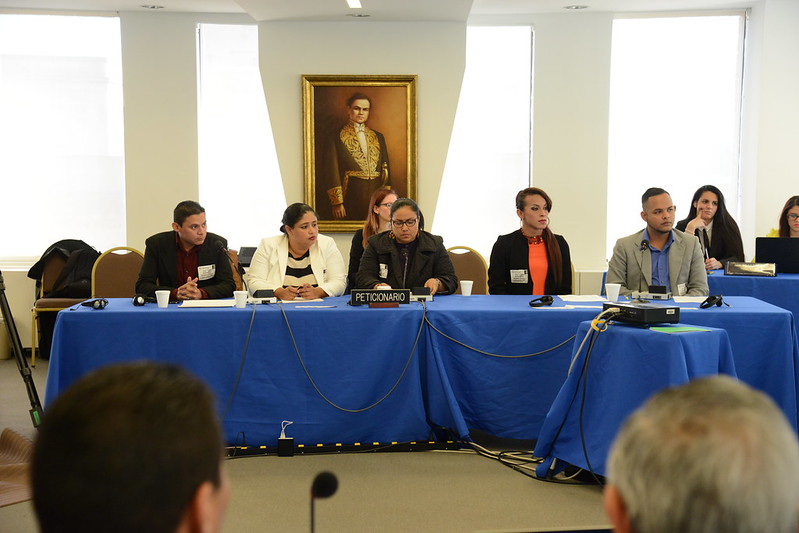This week, on 11 November, the Inter-American Court of Human Rights heard the case of Vicky Hernández and Family v. Honduras. Vicky Hernandez (she / her), a trans woman, sex worker and human rights defender working for the protection of trans rights with Unidad Color Rosa, Colectivo TTT. On 28 June 2009, Vicky Hernández was the victim of an extrajudicial killing. On 18 June, ISHR submitted a third-party intervention to the Court in relation to the case.
Over a decade later, Honduras has failed to conduct an adequate investigation, ignoring critical evidence and failing to identify or prosecute those who murdered Vicky Hernández at a time when the streets were almost exclusively occupied by State officers. Her family have yet to be provided with the truth about her death and with the redress to which they are entitled.
Hernández’ transfemicide occurred in the context of widespread deadly violence against LGBTI individuals, and particularly trans defenders and sex workers, in Honduras. Six of the seven women who founded Unidad Color Rosa Colectivo TTT have been murdered. To this day, Honduras fails to protect LGBTI persons, and in particular LGBTI rights defenders.
The Inter-American Commission on Human Rights (IACHR) found Honduras’ failure to investigate, identify and prosecute the perpetrators of Vicky Hernández’ transfemicide, among other things, to be in violation of the American Convention on Human Rights. After Honduras failed to comply with its recommendations, the IACHR presented Hernández’ case, which is being litigated by La Red Lésbica Cattrachas and Robert F. Kennedy Human Rights, to the Inter-American Court of Human Rights on 30 April.
ISHR’s intervention is intended to assist the Inter-American Court by providing an extended analysis of the scope of the rights under the American Convention on Human Rights. It also demonstrates that Honduras also violated its obligations under the UN Declaration on Human Rights Defenders and the Yogyakarta Principles, which apply existing human rights standards to the specific issues relating to sexual orientation and gender identity.
‘The Honduran authorities’ failure to prevent, investigate and hold perpetrators accountable for Hernández’ murder, especially in the context of widespread violence against trans persons and trans rights defenders, was a flagrant violation of Honduras’ obligation to take measures to prevent and provide protection from all forms of discrimination, violence and harassment on the basis of sexual orientation and gender identity,’ said ISHR’s Legal Counsel and Programme Manager Tess McEvoy.
‘Hernández’ right to life and right to defend rights are clearly articulated in the American Convention, the Yogyakarta Principles and the Declaration on Human Rights Defenders, as is Honduras’ obligation to ensure protection of its citizens against threats, attacks, or discrimination as a consequence of the exercise of those rights,’ McEvoy added.
ISHR’s intervention urges the Inter-American Court of Human Rights to rule that Honduras has violated the American Convention on Human Rights, informed by the Yogyakarta Principles and the Declaration on Human Rights Defenders. ISHR also urges the Court to recommend that Honduras enact and implement laws and policies that protect trans persons and trans rights defenders, and enables LGBTI defenders to safely carry out their activities.
ISHR was provided with expert pro bono assistance in the preparation of the third party intervention by leading international law firm Allens.
Contact: Tess McEvoy, [email protected]
Photo: Flickr / Comisión Interamericana de Derechos Humanos
Download as PDF




